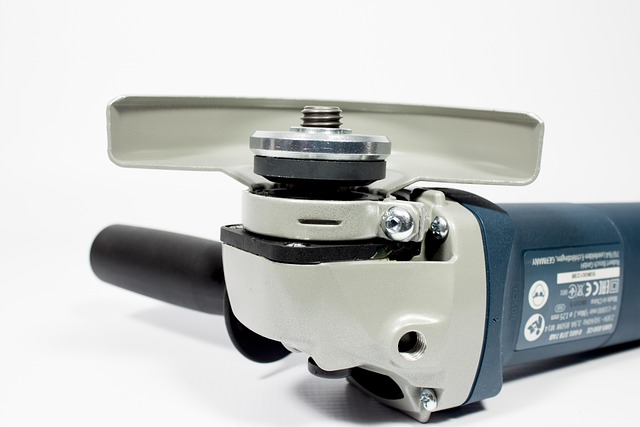Optimizing Boiler Efficiency: When to Schedule Regular Repairs

Regular boiler repair and annual maintenance are essential for comfortable living, safety, and cost…….
Regular boiler repair is an essential practice that ensures the efficient and safe operation of heating systems worldwide. This article aims to delve into the intricacies of this critical maintenance process, offering a comprehensive guide for homeowners, professionals, and anyone interested in understanding the global impact and evolution of boiler maintenance. By exploring various facets, from technological advancements to policy frameworks, readers will gain insights into why regular boiler repair is not just a routine task but a cornerstone of modern energy infrastructure.
At its core, regular boiler repair involves the scheduled maintenance, inspection, and servicing of boilers, which are central heating systems used in homes, buildings, and industrial settings. This process encompasses several key activities:
The history of boiler repair dates back to the early industrial revolution when steam-powered machines became prevalent. As technology advanced, so did the complexity of boilers, leading to more specialized maintenance practices. Regular repair has evolved from a reactive measure to a proactive approach, ensuring longer boiler lifespans and improved energy efficiency.
Boilers play a pivotal role in providing warmth and hot water in millions of homes and businesses globally. Regular repair is significant for several reasons:
The concept of regular boiler repair is not limited by geographical boundaries; it is a universal necessity. However, its implementation varies across regions due to differing climates, economic factors, and cultural practices:
Several trends shape the future of regular boiler repair:
| Trend | Description |
|---|---|
| Digitalization | The integration of IoT (Internet of Things) devices enables remote monitoring, predictive maintenance, and efficient scheduling of repairs. |
| Sustainability Focus | There is a growing emphasis on eco-friendly boilers, with increased adoption of condensing boilers and heat pump technology. |
| Decarbonization | The global shift towards renewable energy sources influences boiler design, with low-carbon alternatives gaining traction. |
| Globalization of Parts and Services | Standardized parts and streamlined service protocols facilitate cross-border maintenance and repair. |
The boiler repair market is influenced by several economic factors:
Regular boiler repair is a significant investment for both homeowners and businesses:
Boiler repair is integral to the broader economic system:
Technological advancements have revolutionized boiler repair:
Technological innovations offer several benefits:
In the coming years, expect further integration of AI (Artificial Intelligence) for predictive analytics, advanced robotics for complex repairs, and more sustainable materials in boiler manufacturing.
Boiler repair is subject to various policies and regulations worldwide:
Policymakers play a crucial role in shaping the boiler repair landscape:
Despite its importance, regular boiler repair faces several challenges:
Addressing these challenges requires a multi-faceted approach:
The UK has been at the forefront of smart boiler technology adoption. A major energy company implemented a program to replace old boilers with smart, condensing models in low-income housing. The result was a 30% reduction in fuel bills for residents and a significant decrease in carbon emissions. This case highlights the positive impact of regular repair and modern technology on both economic and environmental fronts.
Germany launched an initiative to incentivize the installation of efficient heating systems, including modern boilers, in commercial buildings. The program offered tax breaks and grants, leading to a 40% increase in energy-efficient heating systems within two years. This success demonstrates the power of government incentives in driving sustainable boiler repair practices.
A US-based startup developed a remote monitoring system for boilers, allowing building managers to track performance and receive alerts for maintenance needs. This technology reduced downtime by 25% and improved energy efficiency across multiple industrial facilities. This case study emphasizes the value of digital solutions in boiler repair.
The future of regular boiler repair is filled with promising opportunities:
To capitalize on these trends, stakeholders should:
Regular boiler repair is a critical aspect of modern energy infrastructure, with far-reaching implications for efficiency, safety, and sustainability. This comprehensive overview has explored various facets, from historical context to global trends, technological advancements, and policy frameworks. By addressing challenges and learning from case studies, we can ensure that boiler repair practices continue to evolve, providing efficient heating solutions worldwide.
The future holds immense potential for innovation, with digital transformation, decarbonization, and sustainable technologies shaping the direction of this vital industry. As the world navigates its way towards a greener energy future, regular boiler repair will remain an indispensable practice.
Q: How often should I get my boiler serviced?
A: It is recommended to have your boiler serviced at least annually, or more frequently if it’s used heavily. Regular maintenance ensures optimal performance and safety.
Q: Are smart boilers worth the investment?
A: Smart boilers offer advanced features like remote monitoring and improved energy efficiency. While the initial cost may be higher, long-term savings on energy bills make them a worthwhile investment.
Q: Can I perform boiler repair myself?
A: Basic maintenance tasks are often within the capabilities of homeowners, but complex repairs should be left to certified technicians. Always prioritize safety and consult professionals for critical issues.
Q: How do I know if my boiler needs repair or replacement?
A: Look out for signs like unusual noises, inefficiencies (e.g., high energy bills), frequent breakdowns, or the absence of hot water. Regular inspections by technicians can also help identify potential issues early on.
Q: What are some common causes of boiler failures?
A: Boiler failures can result from various factors, including lack of maintenance, corrosion, mineral buildup (scale), damaged parts, and incorrect installation or conversion.

Regular boiler repair and annual maintenance are essential for comfortable living, safety, and cost…….